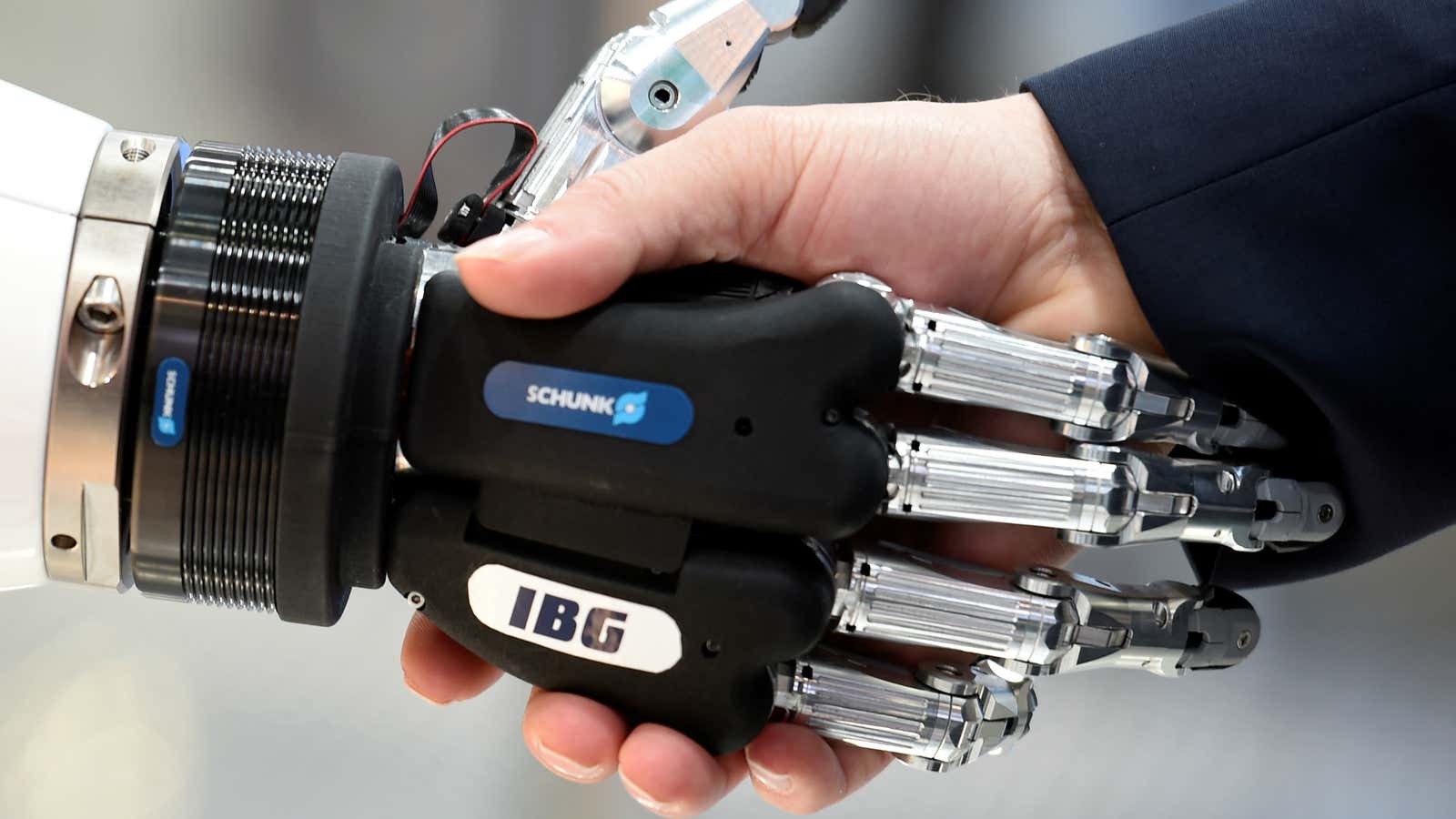American workers know the truth. Their jobs aren’t going anywhere.
The typical narrative about the US labor market is that it is increasingly unstable. Robotics, artificial intelligence, and outsourcing mean jobs are tenuous, driving people in droves to the “gig” economy and other alternative arrangements that aren’t full-time.
This narrative is wrong. The truth is that job market is far less dynamic than it was a few decades ago. In the early 1980s, 16-18% of all jobs were destroyed every year in the US. In 2014, that number was less than 12%. The rate of people switching jobs also fell, as well as the number of people moving for jobs. The share of full-time independent contractors is also falling.
Workers recognize this. According to newly released data from the Bureau of Labor Statistics, the percentage of Americans who think their job won’t last for another year continues to fall. In 2017, only 3.8% of workers thought their job wouldn’t last, down from 4.1% in 2005 and 4.9% in 1995.
The declining fear for their jobs is true for workers of every education level, but most notable among people who attended college:
Economists are not entirely sure why the labor market has settled down so much. Intriguing potential explanations include better matches between employers and workers, more occupational licensing, declining social trust, and a lack of competition between companies.
Whatever the reason, American jobs are more stable than they have been in a generation, and workers know it.
